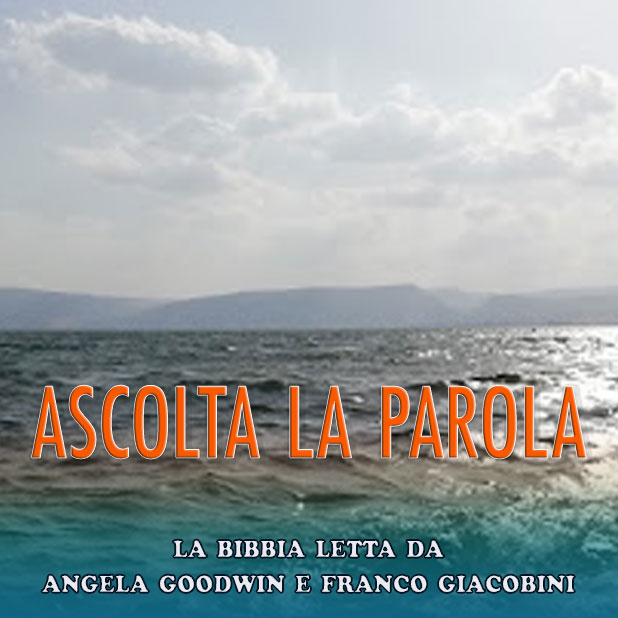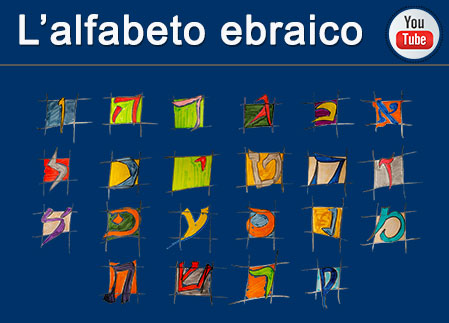Archdiocese of Los Angeles
Stati Uniti d'America 01/09/1976
6. Los Angeles has one of the major Jewish communities of the world in terms of size and influence. The Church of Los Angeles has enjoyed a long and deep sense of mutual respect with this community.7. We acknowledge that the Jewish community has its own sensitivities and concerns. Catholics in dialogue with Jews should be mindful of the following sensitivities which seem to be growing concerns in many portions of the Jewish community:
a. The Holocaust: The mass murder of six million Jews by the Nazis is a painful memory to many American
Jews;
b. The State of Israel: To American Jews, Israel is not « their country » but the Israelis are part of « their people »;
c. Anti-Semitism: Some view Jews as inferior or reprobate;
d. Proselytizing: Efforts to convert Jews to Christianity; or views of Judaism as an « incomplete faith » are considered unacceptable;
e. Interfaith Marriage: As a small minority, Jews are concerned with preserving a distinct living faith.
8. While these are not intended to he all-inclusive, they are agenda concerns we must sensitively consider. As Catholics we ought to be aware that these issues will influence all dialogue in which the Jewish community becomes involved.
LOCAL DIALOGUES
9. Three distinct local dialogues are encouraged:
Priest-Rabbi Dialogue; In these dialogues priests and rabbis may gradually explore areas of mutual concern and sensitivity. With our scriptural heritage having such a mutuality, it is highly recommended that joint scripture exploration between scholars and clergy of both faiths be encouraged. The Council reminds us that « since the spiritual patrimony common to Christians and Jews is great, this sacred Synod wishes to foster and recommend that mutual understanding and respect which is the fruit above all of biblical and theological studies, and of brotherly dialogue » (Declaration on the Relationship of the Church to Non-Christian Religions, 43. St. John's Major Seminary and local rabbinic seminaries are ideal centers for student exploration of out heritage. In addition, homiletic and liturgical studies could counteract a sometimes anti-Semitic Gospel interpretation and do much to develop mutual richness in music, festival and symbol. Since marriage and family life are of extreme concern in both communities, joint study, understanding and action might well aid the struggle in which these institutions find themselves.
Education: Dialogue is a reality that looks both to the present and to the future for a measure of success. The well-developed parochial and secondary religious education systems of the Jewish and Catholic communities in Los Angeles offer a unique opportunity to continue the positive achievements of the Jewish-Catholic dialogue. By exposing students to the religions and by elaborating on the sources common to both, the success of today's dialogue may be assured for the future.
Parish and Synagogue Interaction: If the dialogue between Catholics and Jews is to be thorough and significant, it must also include a grassroots exchange between Catholic and Jewish congregations. Certainly the Easter-Passover liturgical convergence, while presenting some inherent difficulties, does offer an opportune time for interchange. Times such as Thanksgiving present another excellent opportunity for mutual sharing. However, as in any other dialogue, great care, patience and understanding are required. It is suggested that priests and rabbis participate in dialogues on their own level as preparation for a congregational dialogue.
10. In exploring such parish-synagogue interactions, priests and rabbis might find it beneficial to seek suggestions from the Interreligious Commission of the Archdiocese and the Committee on Interreligious Affairs of the Board of Rabbis. There are basic pastoral needs which need careful attention to properly implement the goals of these dialogues:
a. Selectivity in Scripture texts: While the entire Hebrew Scripture or Old Testament is part of Catholic tradition, the New Testament is not part of the Jewish Testament. To avoid offense and mutual misunderstanding, texts for liturgical services or joint scripture study must be selected very carefully.
b. Liturgical Interchange: Such an interchange could consist of attendance at a Catholic or Jewish worship service or a joint prayer service cooperatively and sensitively developed by both traditions.
c. Trinitarian Formulas: While a prayer to the God of Abraham, Isaac and Jacob, the One God of Creation and the Universe, is part of the Catholic experience, the Catholic formulas referring to the Trinity or Jesus as Lord are foreign to the Jewish expression.
d. Correct use of the Seder Service: The Seder Service can be an enriching experience for the Catholic if it is conducted in accordance with authentic Jewish Tradition. We must avoid turning it into a bogus Last Supper meal.
e. Correct Awareness of Holy Days: To insure a clear understanding of the meaning of Holy Days and Sacred Seasons in the context of the respective faiths. Hanukkah must be understood in the light of Jewish History: it is not a Jewish Christmas. Easter must be understood in the light of the Christian belief in the Resurrection: it is not a Christian Passover.
f. Centrality of the Person of Christ: Because of the centrality of Christ in our faith Catholics may experience a sense of shock when exposed to Judaism, in which Christ plays no role. Conversely, the centrality of Christ can be a shock to Jewish observers. Priests and rabbis should be aware of this possibility and should prepare their congregations for these differences.
g. Christian Call to Witness: The obligation to witness our faith may be interpreted by non-Christians as an attempt to denigrate their religious beliefs. In our manifestations of witness, we must be particularly sensitive to avoid any semblance of proselytism. Jews are disturbed when members of so-called « Jesus Movements n (such as « Jews for Jesus >) disturb their privacy in the name of Christianity. The Archdiocese is not connected with these movements and recognizes the animosity they may cause.
11. The religious experience connected with the pastoral sacraments and rites of Baptism, Marriage, Confirmation, Bar Mitzvah and Burial should be explored. The ability to express appropriate sentiments on these occasions is one of the basic signs of authentic understanding and respect. Because of its many ecumenical dimensions, we shall explore in detail the official Catholic and Jewish positions regarding marriage.
CATHOLIC-JEWISH MARRIAGES
12. When a Catholic and a Jew decide to enter into marriage, the priest who is helping them prepare a marriage ceremony should be sensitive to the religious conviction and customs of both parties. Neither party to the marriage should be asked to violate the integrity of his or her faith.
13. Priests of the Archdiocese should be aware that the Jewish community is officially in opposition to mixed marriages; they are a prime area of concern and sensitivity within the Jewish community.
14. The official statement of the Board of Rabbis of Southern California, made in response to an inquiry from the Archdiocesan Commission on Ecumenical and Interreligious Affairs, highlights this concern:
Our Board of Rabbis has issued a statement, as of February 28, 1974, in which we called upon members to refrain from officiating at mixed marriages. This is in accordance with the decision and guidelines established by each of our three rabbinical associations and is in keeping with our on-going Jewish tradition.
Similarly, all of our rabbinical bodies have reaffirmed the historic view of Judaism that Rabbis should not participate with clergymen of other faiths in the performance of marriage ceremonies. Hence Rabbis who do participate with ministers of other faiths in such ceremonies are violating Jewish doctrine and practice and are doing so without the sanction of tradition or the approval of their rabbinic bodies.
Our committee, of course, recognizes that the Catholic religious community establishes regulations for the guidance of its own constituency, but in the matter referred to us it also seems to touch upon concepts and rites treasured by the Jewish community. The official religious leadership of the Jewish faith would therefore welcome Catholic cooperation in helping to keep intact our accepted standards and views concerning rabbinical participation in Jewish-Catholic marriages.
These regulations should be shared with a Jewish-Catholic couple seeking pastoral advice concerning marriage. The priest should also advise the couple that the Catholic Church does not encourage such marriages; indeed, the Church greatly desires that Catholics marry Catholics. This position stems from a concern for the marital union and the good of the family.
15. If the priest is still asked to assist after sharing this with the Catholic-Jewish couple, the following avenues may be pursued:
a. A priest may officiate at the wedding of a Jew and a Catholic, with a dispensation from the impediment of disparity of worship, in the sanctuary or other part of the Catholic Church, or in any suitable building on the parish grounds.
b. A dispensation from the Catholic form of marriage may be sought so that the Catholic party may marry in a religious ceremony before a rabbi in a temple, or other sacred or private place.
c. If neither of these options is possible, then the Ordinary is prepared to dispense the Catholic party from the Catholic form of marriage so that a public ceremony that is civilly valid will be accepted by the Catholic Church as both licit and valid.
16. Jews may be admitted as witnesses and attendants at a marriage ceremony in a Catholic church. Catholics may act as witnesses and attendants at the wedding of friends who are Jews.
17. When a priest or deacon is invited to participate in the marriage ceremony of two Jews conducted by a Rabbi, he may offer prayers for the couple and invoke God's blessing on them.
18. When a Rabbi is invited to participate in the marriage ceremony of two Catholics conducted by a priest, the Rabbi should be offered a place of honor in the sanctuary and may offer prayers for the couple and invoke God's blessing on them.
242 visualizzazioni.
Inserito 01/01/1970
Relazioni Ebraico-Cristiane
Ultime novità nel sito
- 19/04/2020: Articolo - L’enigma della Maddalena
- 23/02/2020: Articolo - Il locus amoenus nelle catacombe ebraiche e cristiane di Roma
- 16/02/2020: Articolo - Il profetismo nel Vicino Oriente antico
- 13/02/2020: Articolo - I Profeti della Cappella Sistina
- 09/02/2020: Articolo - Gerusalemme e la Terra Santa di Israele


